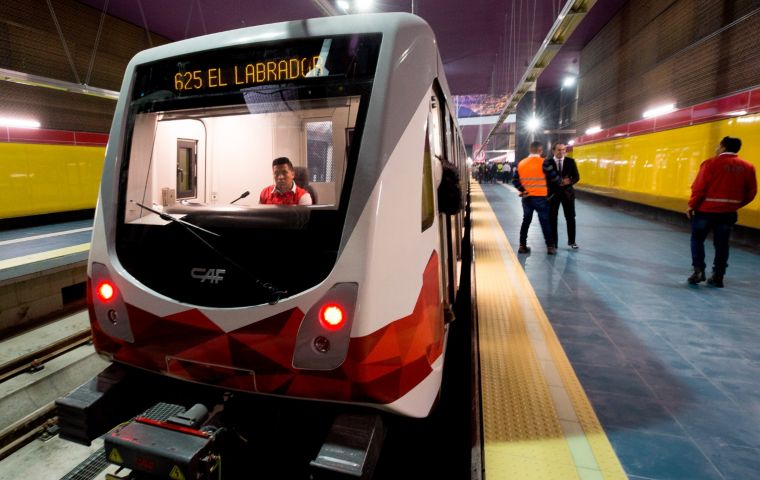MercoPress. South Atlantic News Agency
Quito Metro does not run smoothly on first day of commercial service
 Quito Mayor Santiago Guarderas acknowledged that there were some inconveniences
Quito Mayor Santiago Guarderas acknowledged that there were some inconveniences Ecuadoreans stood in long lines Tuesday to buy tickets for the first day of commercial services by Quito's new underground railway system, it was reported. The Quito Metro had been performing free-of-charge test rides for the past four months.
On the first day of commercial operations, the lack of ticket agents and failures in the pass printing system with QR codes led to numerous passenger complaints.
Quito Mayor Santiago Guarderas acknowledged that “there are inconveniences that will be polished to offer, in a short time, an impeccable service to the people of Quito.”
The company said in a statement that at Quitumbe station, the first exit point from the south of Quito, the demand of users tripled the average that the Metro had been mobilizing in its test phase, which generated setbacks in the sale of tickets.
In view of this, an apology was issued together with the promise that “the necessary corrective measures are being taken so that the following days will be carried out with agility.”
As of this Tuesday, the general public must pay a fare of US$ 0.45, while a reduced fare of US$ 0.22 was established for students up to high school and senior citizens and a preferential fare of US$ 0.10 for people with disabilities.
The Quito Metro construction began in the 2010s by the Spanish company Acciona at a cost of over US$ 2 billion. It has a fleet of 18 trains that run from north to south along 22.6 kilometers.
The network is still not operating at full capacity, with reduced schedules and some stations still closed. When fully operational, this transportation system is expected to become a relief for the Ecuadorian capital, which is experiencing vehicular chaos.
The Quito Metro will be operated during the first 6 years by a consortium formed by the French company Transdev and the Colombian Metro de Medellín.




Top Comments
Disclaimer & comment rulesCommenting for this story is now closed.
If you have a Facebook account, become a fan and comment on our Facebook Page!